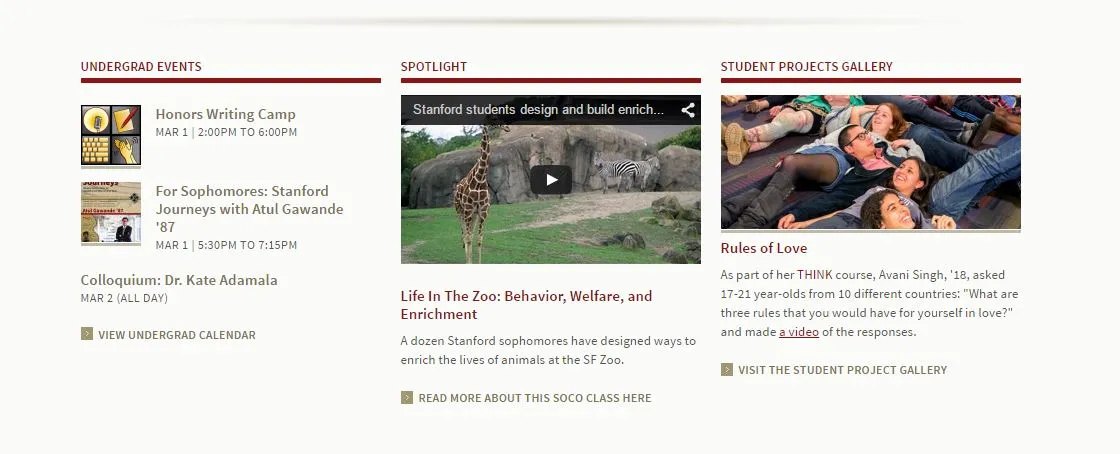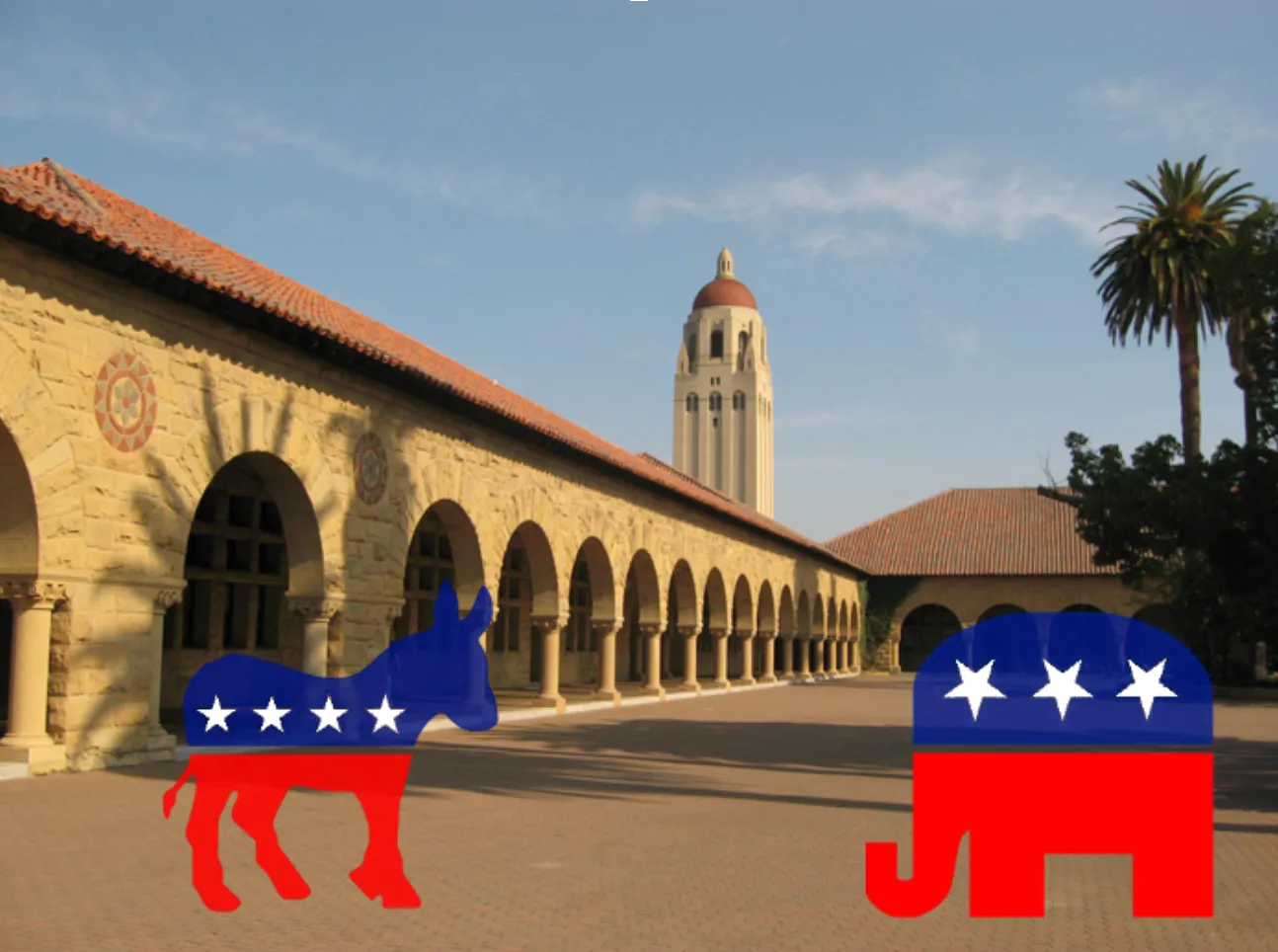Table of Contents
Coming to Stanford made me feel much more conservative than I ever had before. Conversations in my dorm room and class sections turned into debates that deeply challenged my beliefs. Although initially uncomfortable, these interactions exposed me to new perspectives and a variety of compelling arguments. I found myself in an environment where economic conservatism had to be defended – with quality arguments – instead of universally acknowledged. At Stanford, the word conservative was associated with inflexibility, coldness, and an inability to empathize with social issues. Transitioning from certainty to ambiguity left me feeling very unsure about my political identity. The intellectual challenges I faced encouraged me to research in order to strengthen my convictions and develop new perspectives. Additionally, I developed the skills to listen and understand the nuances of other people’s perspectives. Here is my story:
Growing up in Bradenton, Florida, the connotation of conservative meant that you were intelligent and worked hard. Self-identifying as liberal meant that your peers assumed you were relatively uninformed. In reality, it probably didn’t matter where on the spectrum you fell. You learned what you vocalized from your parents, and research was just a way to prove those opinions. After coming to Stanford, it became clear that liberals and conservatives had at least one common characteristic: the tendency to create harsh generalizations about one another.
This lesson began on September 17, 2013 when I got up and moved 2,852 miles away from home. My first days on campus were a whirlwind. I did not know anyone at Stanford, I think I changed my major at least seven times, and I was sharing a room for the first time. One of the last things on my mind was the political state of the nation, let alone the world. I felt like I hardly had time to look at online news; picking up a newspaper barely crossed my mind. It was a new place, with new people, at a new phase of my life.
Overall my transition to Stanford was relatively smooth. I loved my classes and professors. Our football team was doing well and I started making friends in my dorm. The conversations taking place in my dorm quickly proved to me that I was surrounded by brilliant individuals who had thought deeply about complicated and fascinating issues. That happened to be the problem. Highly intelligent individuals challenged my beliefs. I found myself reevaluating my position on most topics, and often tried to grasp the definition of the word “conservative” while contemplating if that label applied to me.
A pivotal moment occurred when my friend took me to my first Review meeting after a quarter on The Farm. From the moment I walked into the meeting room in Old Union, I was greeted by smiles and introductions. The awkward phase of meeting new people was bypassed, and I was welcomed simply because I had come. With the flip of the switch, the warm and friendly students became impassioned with current events and their implications. News stories came up left and right and people offered insights, perspectives, and challenging arguments. In a grand total of twenty seconds, I was hooked. Maybe it was a coincidence that one of my favorite subjects, education, happened to be a main topic of debate. If luck led me to my first article for The Review, the editing process kept me coming back week after week. The editors helped me take a fascinating topic and explore it from contrarian angles. They poked holes in my argument and empowered me to find answers to the hard questions. With their help, I was able to take underdeveloped ideas and create thorough arguments. At every meeting, my brain stretched in a way that my classes, professors, and other peers had yet to induce. Every assertion I made was countered to make me reevaluate my logic. In some cases, my mind was changed. In others, my argument was strengthened.
For me, The Review has been a source of close friendships, an introduction to new ideas and topics, and most of all, a foundation for thinking. Many people at Stanford have thought. They have thought long and hard about many issues – both popular and obscure. The Review, however, keeps the process alive. The members of the organization keep my on my toes, and more than anything, they keep me thinking.







